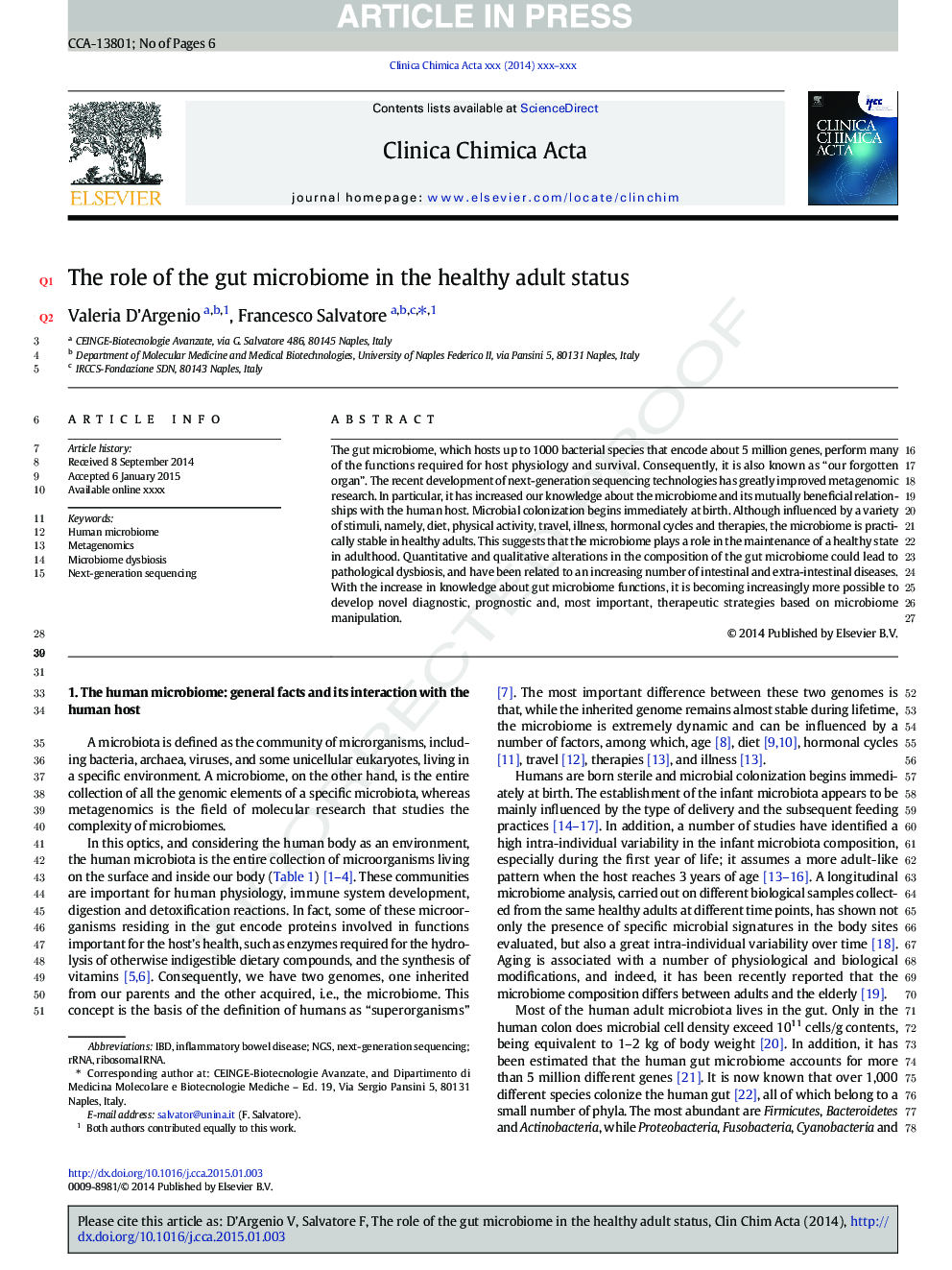| Article ID | Journal | Published Year | Pages | File Type |
|---|---|---|---|---|
| 10817286 | Clinica Chimica Acta | 2015 | 6 Pages |
Abstract
The gut microbiome, which hosts up to 1000 bacterial species that encode about 5 million genes, perform many of the functions required for host physiology and survival. Consequently, it is also known as “our forgotten organ”. The recent development of next-generation sequencing technologies has greatly improved metagenomic research. In particular, it has increased our knowledge about the microbiome and its mutually beneficial relationships with the human host. Microbial colonization begins immediately at birth. Although influenced by a variety of stimuli, namely, diet, physical activity, travel, illness, hormonal cycles and therapies, the microbiome is practically stable in healthy adults. This suggests that the microbiome plays a role in the maintenance of a healthy state in adulthood. Quantitative and qualitative alterations in the composition of the gut microbiome could lead to pathological dysbiosis, and have been related to an increasing number of intestinal and extra-intestinal diseases. With the increase in knowledge about gut microbiome functions, it is becoming increasingly more possible to develop novel diagnostic, prognostic and, most important, therapeutic strategies based on microbiome manipulation.
Related Topics
Life Sciences
Biochemistry, Genetics and Molecular Biology
Biochemistry
Authors
Valeria D'Argenio, Francesco Salvatore,
